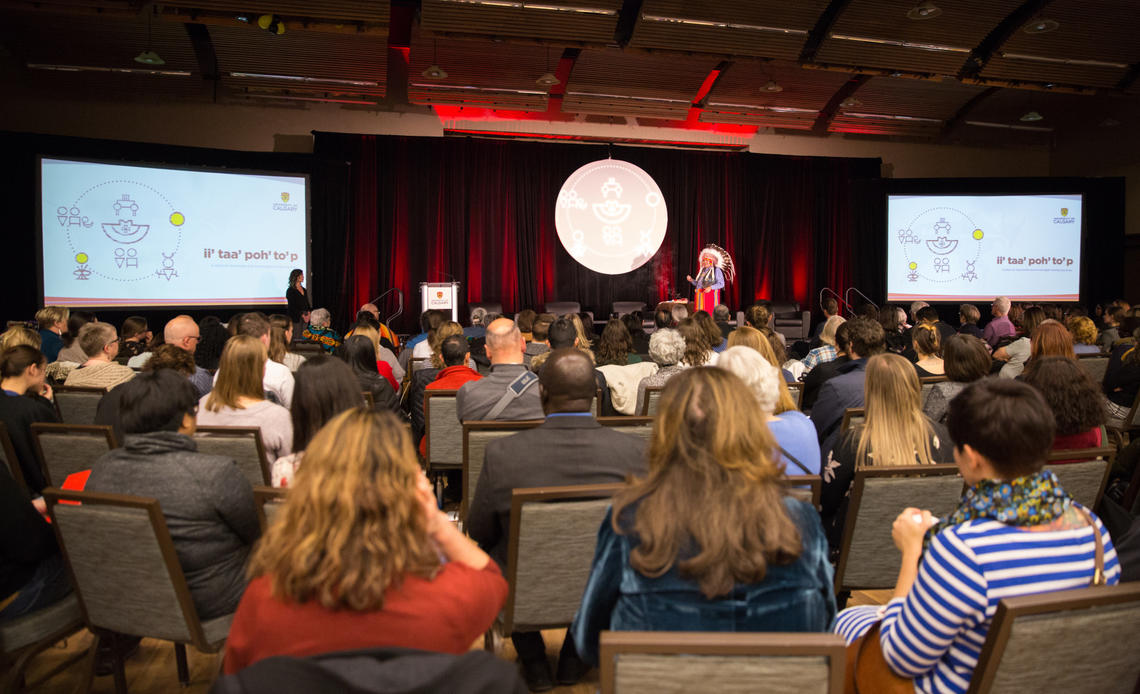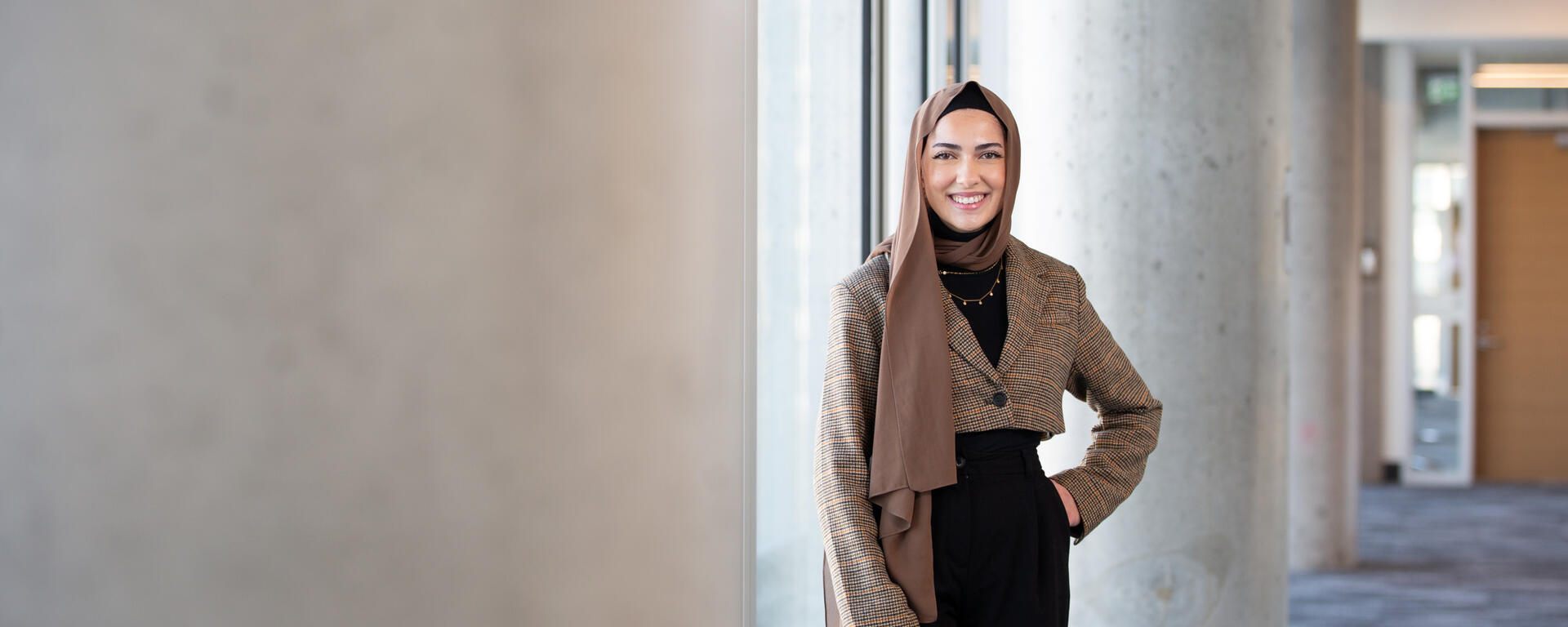CMF Statement on Anti-Racism
The Department of Communication, Media and Film is located on the traditional territories of the people of the Treaty 7 region in Southern Alberta, which includes the Blackfoot Confederacy (comprising the Siksika, Piikani, and Kainai First Nations), as well as the Tsuut’ina First Nation, and the Stoney Nakoda (including the Chiniki, Bearspaw, and Goodstoney First Nations). The City of Calgary is also home to Métis Nation of Alberta (Districts 5 and 6).
We stand in solidarity with Black, Indigenous and Asian members of the CMF community as well as all scholars, students, staff and community members of colour in opposition to racism and with the goal of promoting racial justice.
CMF is developing concrete strategies for supporting students and scholars of colour. Our commitment to anti-racism includes:
- Establishing the Equity, Diversity and Inclusion (EDI) in CMF Committee (Winter 2021)
- Conducting a climate survey and holding discussions with CMF students; then developing a strategy to address the concerns raised (Fall 2021)
- Conducting a curriculum/teaching review to evaluate how we define inclusivity in the classroom (2021/2022)
- Presenting Race in Film/Media public lecture (2021/22)
As Faculty of Arts Dean, Dr. Richard Sigurdson writes, “We acknowledge that making a statement is not enough. We need to actively counter intersectional racisms in all our teaching and learning, scholarship and creative activity, and community engagement and partnerships. As a Faculty, we commit to take action by promoting a safe and welcoming space for all members of our university community and by making changes to disrupt and erase systemic discrimination.”
- EDI in CMF Committee

ii’ taa’poh’to'p progress report presentation (2018)
Resources
The Student Success Centre provides many programs and services to help ensure the success of all undergraduate students at the University of Calgary. In addition to academic, career and personal counselling, they offer special programs and workshops that help students develop academic and leadership skills.
The Student Ombuds Office provides a key advocacy resource for all students at the University of Calgary by providing a confidential, safe place for students to discuss concerns they have regarding interpersonal conflicts, academic and non-academic concerns, as well as many other problems. The Ombuds website describes the role of the ombudsman, contact information and information about appeals and grade reappraisals specific to each Faculty at the University.
The Teaching and Learning Centre's experts can help you take an innovative approach to your teaching. Whether you’re a faculty member, postdoctoral fellow or graduate student, you can take your instructional skills and knowledge to the next level.
The mission of Student Accessibility Services is to work collaboratively and innovatively with the campus community to create an accessible, equitable and supportive learning and living environment that enhances each student's academic and personal development.
The vision of the Women's Resource Centre is to achieve equality at the University of Calgary and to create a more inclusive campus environment. Their website identifies and promotes upcoming equity-related activities and has links to several other support groups interested in equity issues including the Latin American Support Organization, the Women Guiding Women–Mentorship & Leadership Training Program and the New Friends & Neighbourhood Group. They offer many programs targeted at promoting equity through their three pillars of work: Wellness, Leadership and Diversity.
“The mandate of Writing Symbols Lodge at the University of Calgary is to provide a culturally appropriate environment that encourages and supports the success of Indigenous students in their pursuit of knowledge and higher education.” "Writing Symbols Lodge provides academic, personal, and cultural support services and programs to prospective and current First Nations, Métis, and Inuit students, and offers a welcoming and supportive learning environment for the whole campus community."
The University of Calgary Graduate Students' Association represents the collective interests, but not individual opinions, of graduate students to governing bodies of the university, all levels of government and the surrounding community of Calgary. They provide many services such as employer relations, transition programs, and teaching assistantships.
The Postdoctoral Program has resources for potential and current postdocs including a postdoc handbook. Resources for faculty members include those on hiring postdocs, being good mentors, writing good reference letters. There is also a Postdoctoral Association of the University of Calgary.
The mandate of the University of Calgary's Academic Women's Association is to support academic women, through advocacy and raising awareness of women's issues in collaboration with other women-centred organizations on campus. The AWA seeks to advance career development from earliest stages to post-career.
The Q Centre is a resource centre for the gay, lesbian, bisexual, transgender, queer, and allied (LGBTQA) communities here on campus. This sexual and gender diversity centre provides a safe space for those who need it while also offering resources, peer support, and volunteer opportunities.
The SU Wellness Centre feels that we all have a role to play in creating a healthy campus community, which is about working collaboratively to create a campus environment where students, faculty, and staff feel empowered to support each other and participate actively in maintaining their own health and wellbeing. With a student-centered approach, the Wellness Centre offers comprehensive, holistic, and accessible programs and services to foster all dimensions of wellness.
Office of Diversity, Equity, and Protected Disclosure
The Office of Diversity, Equity, and Protected Disclosure (ODEPD) serves as a centralized resource to all members of the university community in order to provide training and awareness regarding issues of equity and diversity. The ODEPD also functions as the central point of contact for dealing with protected disclosures, including those concerned with alleged breaches of research integrity. This website will also provide you with strategies for dealing with discrimination and harassment and provide information on making or responding to a claim.

Staff Resources
The Canadian Association of University Teachers' Equity and Diversity Council is a standing committee that advises the CAUT Council. It has four working groups: Academic Staff with Disabilities Working Group, Lesbian, Gay, Bi-Sexual, Transgendered, Queer and 2-Spirited Academic Staff Working Group, Racialized Academic Staff Working Group and Women Academic Staff Working Group. View the issues and campaigns within CAUP, including equity-related issues.
“It is the role of the Faculty Association ... to ensure individual faculty members have equal access to justice, and that proper policies and procedures are in place to ensure that this goal is achieved. A ‘fair environment’ that discourages favouritism and protects faculty members from arbitrary decisions is the essential foundation of an intellectually independent and open university.” The Faculty Association website provides a general overview of faculty employment at the University of Calgary and also includes hiring issues of Sessional Lecturers.
The AUPE local 52 is the union that represents staff at the University of Calgary. The mission statement can be found on their website. Fair and equitable treatment of everyone is expected. The Statement of Principles of Conduct includes 7 points that include items pertinent to equity. These principles apply to the University community, not just staff or AUPE members. The AUPE center is located in Science A, Rm 128.

